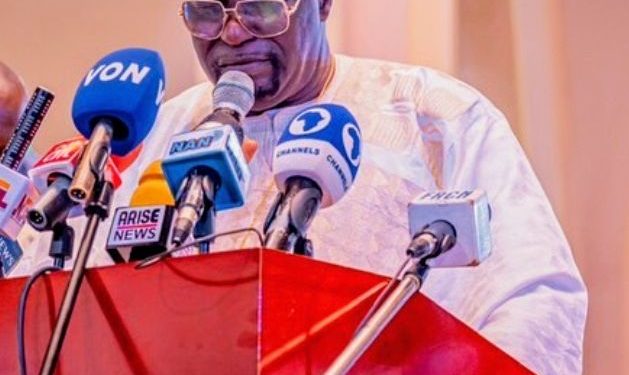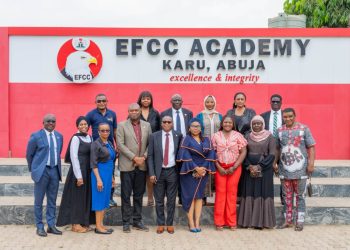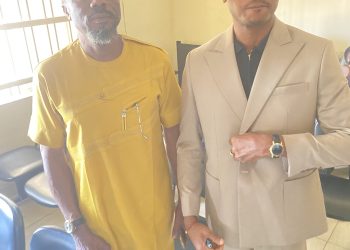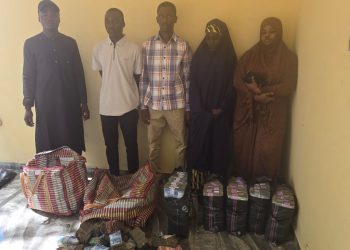By Nkechi Eze
The trial of Bishop Katung Jonas and Okewole Dayo, Chairman and Secretary of Covenant Fadama Multi-purpose Cooperative Society, Jos, respectively, resumed on Tuesday, July 22, 2025, before Justice Sharon T. Ishaya of the Federal High Court sitting in Jos, Plateau State, with explosive revelations from the first prosecution witness.
Sulaiman Kwalla, testifying as the first prosecution witness (PW1), told the court that he, his wife, and many others were drawn into investing in the cooperative society by the religious influence and televised sermons of Bishop Katung. The duo are being prosecuted by the Economic and Financial Crimes Commission (EFCC) on a 23-count charge bordering on obtaining money under false pretence to the tune of ₦178,885,000.
In a statement released by EFCC spokesperson, Dele Oyewale, the witness recounted how he was persuaded to invest ₦200,000 and an additional ₦100,000 on behalf of his wife, Halima Ibrahim Danyaro, after watching adverts for the cooperative society on Plateau Radio Television Corporation (PRTV). The commercials, according to him, often followed sermons delivered by Bishop Katung, who openly endorsed the cooperative and promised a 10 percent monthly return on investment.
“Based on the Bishop’s religious standing and the promise of a 10 percent monthly return, I was convinced it was a genuine investment. I filled a form and was directed to pay into Dadin Kowa Microfinance Bank, said to be owned by the cooperative. I was issued official receipts for both payments,” Kwalla testified.
However, he said that by the end of the first month, neither he nor his wife received any of the promised returns. Upon visiting the cooperative’s office along Secretariat Road in Jos, he was met by a crowd of disappointed investors facing the same fate.
Kwalla described how, on June 4, 2012, the situation escalated when a large group of aggrieved investors stormed the cooperative’s office, demanding refunds. The atmosphere became so tense that armed policemen had to intervene, eventually evacuating the second defendant, Dayo, for safety. He was subsequently detained at the Plateau State Police Headquarters.
The witness further narrated that following the incident, a reconciliation meeting was convened involving the police, the investors, and Bishop Katung. During the meeting, the bishop admitted being the chairman of the cooperative and pledged to begin refunding investors from July 2012—a promise that he failed to honour.
“At every turn, there were new excuses. Eventually, Bishop Katung introduced Lanre Global Concept, a consultancy firm he claimed would help recover our funds from abroad. We refused, as we had no prior dealings with the firm. Later, he introduced another scheme, Global View, where he admitted to have channeled funds from the cooperative society into forex trading. All these promises turned out to be fraudulent,” Kwalla told the court.
The witness also disclosed that after numerous failed repayment efforts, the investors, through their lawyer, Solomon Dalung, petitioned the EFCC over the matter. The petition alleged that over ₦8 billion was fraudulently obtained from about 44,000 investors.
While his own investment of ₦200,000 was eventually refunded through an official of the cooperative, Kwalla said his wife’s ₦100,000 remains unrecovered.
Efforts by the prosecution counsel, Ibrahim Buba, to tender the receipts issued for both payments and the EFCC petition during the proceedings met resistance from the defence. C.I. Nwogbo and G.G. Achi, counsel to the first and second defendants respectively, objected to the admissibility of the receipt issued in the name of the witness’s wife, arguing that she was neither present in court nor the one testifying. They also opposed the admissibility of the petition, claiming it lacked certification in accordance with Section 104 of the Evidence Act and the Administration of Criminal Justice Act (ACJA).
Buba countered, stating that the witness had already established that his wife was a victim and that the receipt was issued by the cooperative society, making it relevant to the charge of obtaining money under false pretence. He argued that relevance is the foundation of admissibility. On the petition, he submitted that it was an original document and did not require certification under the law.
Justice Ishaya adjourned the matter to Wednesday, July 23, 2025, for ruling on the admissibility of the documents and continuation of trial.
















